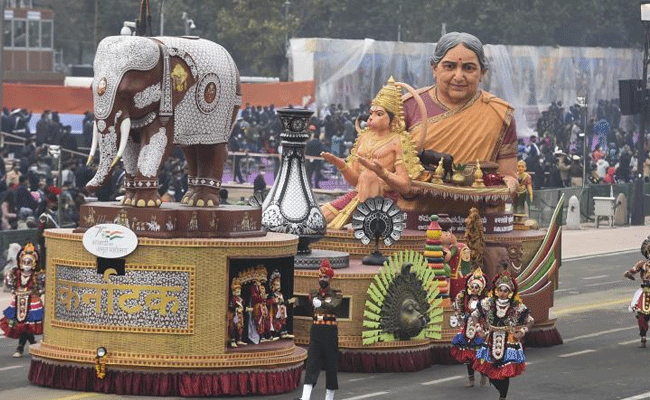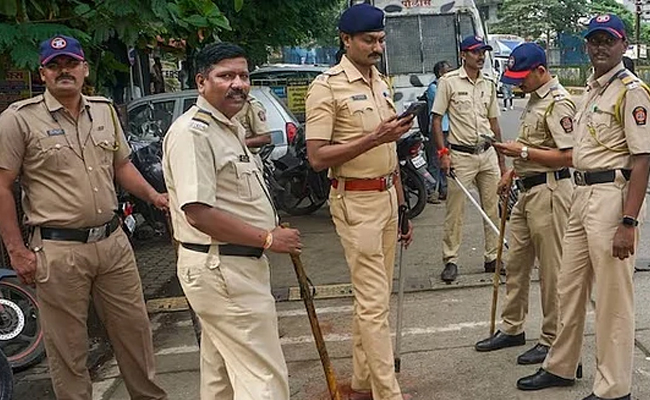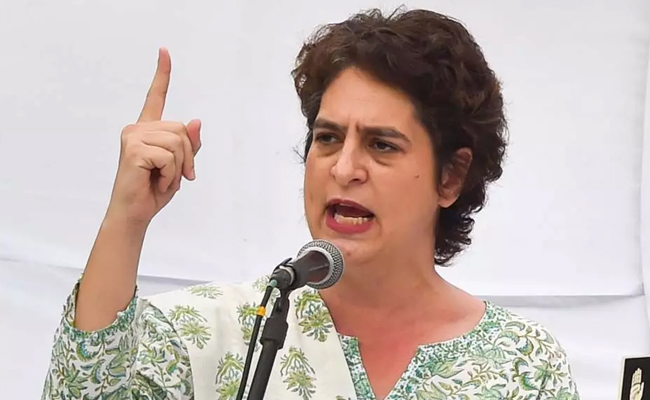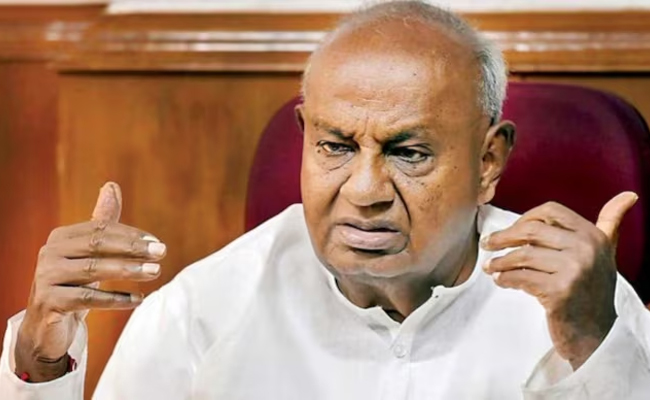Bengaluru: After 13 years, the tableau from Karnataka, which reflect the art and culture of the state, will not get a chance to shine in the Republic Day parade.
The Central government has turned down the proposal of the state to showcase Karnataka's millet diversity during the Republic Day parade on the Kartavya Path, state government officers have said.
Sources in the Department for Information and Public Relation have said that, while the assessment committee members had appreciated Karnataka's design and music in initial rounds, the state lost out at the final stage of selection, reports Times of India.
An official added that many states complained that they had been neglected for several years, with the committee giving opportunity to only a few states to present their tableaux.
Karnataka has won several awards for its tableaux and some of its themes were appreciated for their creativity and splendour. The state has focused on its rich cultural heritage, including folklore, handicrafts and biodiversity and was the runner-up last year, having presented the theme 'cradle of traditional handicrafts'.
The Ministry of Defence (MOD) has revised the process of selection and also streamlined the number of tableaux presented during the Republic Day parade, following a strong criticism from Kerala and Telangana in 2022 for ignoring the proposals of many states.
“Unlike picking individual states as per the roster, the Centre categorised the country into several zones and picked two to three tableaux from each zone,” an MOD source has said.
As per the new selection format, Karnataka, along with four other states and three union territories, was a part of the Southern zone.
The MOD officer has said that, in contrast to the selection of 15 tableaux, this year, they selected the three best proposals from each zone that had eight states. Zones that had only four states were to present two tableaux each. The selection was carried out also on a proportionate formula, the officer has added.
The MOD has given priority to states and union territories that had the least opportunity to participate in the parade in the last eight years, the officer has explained.
Let the Truth be known. If you read VB and like VB, please be a VB Supporter and Help us deliver the Truth to one and all.
Malkangiri (PTI): Normalcy returned to Odisha’s Malkangiri district on Monday, nearly a week after around 200 villages were damaged in violent clashes in a village, with the district administration fully restoring internet services, a senior official said.
Additional District Magistrate Bedabar Pradhan said internet services, suspended across the district on December 8 to curb the spread of rumours and misinformation following the clashes, were restored after the situation improved.
The suspension had been extended in phases till 12 noon on Monday.
The administration also withdrew prohibitory orders imposed under Section 163 of the Bharatiya Nyaya Sanhita within a 10-km radius of MV-26 village, where arson incidents were reported on December 7 and December 8.
Though the violence was confined to two villages, tension had gripped the entire district, as the incident took the form of a clash between local tribals and Bengali settlers following the recovery of a headless body of a woman on December 4, officials said.
ALSO READ: Why remove Mahatma Gandhi's name, asks Priyanka on move to replace MGNREGA
The violence broke out after residents of Rakhelguda village allegedly set ablaze several houses belonging to Bengali residents, forcing hundreds to flee. The headless body of Lake Podiami (51), a woman from the Koya tribe, was recovered from the banks of the Poteru river on December 4, while her head was found six days later at a location about 15 km away.
Officials said the district administration held several rounds of discussions with representatives of the tribal and Bengali communities, following which both sides agreed to maintain peace.
Relief and rehabilitation work has since been launched at MV-26 village, with preliminary assessment pegging property damage at around Rs 3.8 crore.
A two-member ministerial team headed by Deputy Chief Minister K V Singh Deo visited the affected village, interacted with officials and locals, and submitted a report to the chief minister.
So far, 18 people have been arrested in connection with the violence, the officials said, adding that despite the withdrawal of prohibitory orders and restoration of internet services, security forces, including BSF and CRPF personnel, continue to be deployed to prevent any untoward incident.
On Sunday, Nabarangpur MP Balabhadra Majhi visited MV-26 and neighbouring Rakhelguda villages, and held discussions with members of both communities as part of efforts to rebuild confidence and restore peace.
More than two lakh Bengali-speaking Bangladeshis were rehabilitated by the Centre in Malkangiri and Nabarangpur districts in 1968, and they currently reside in 124 villages of Malkangiri.





